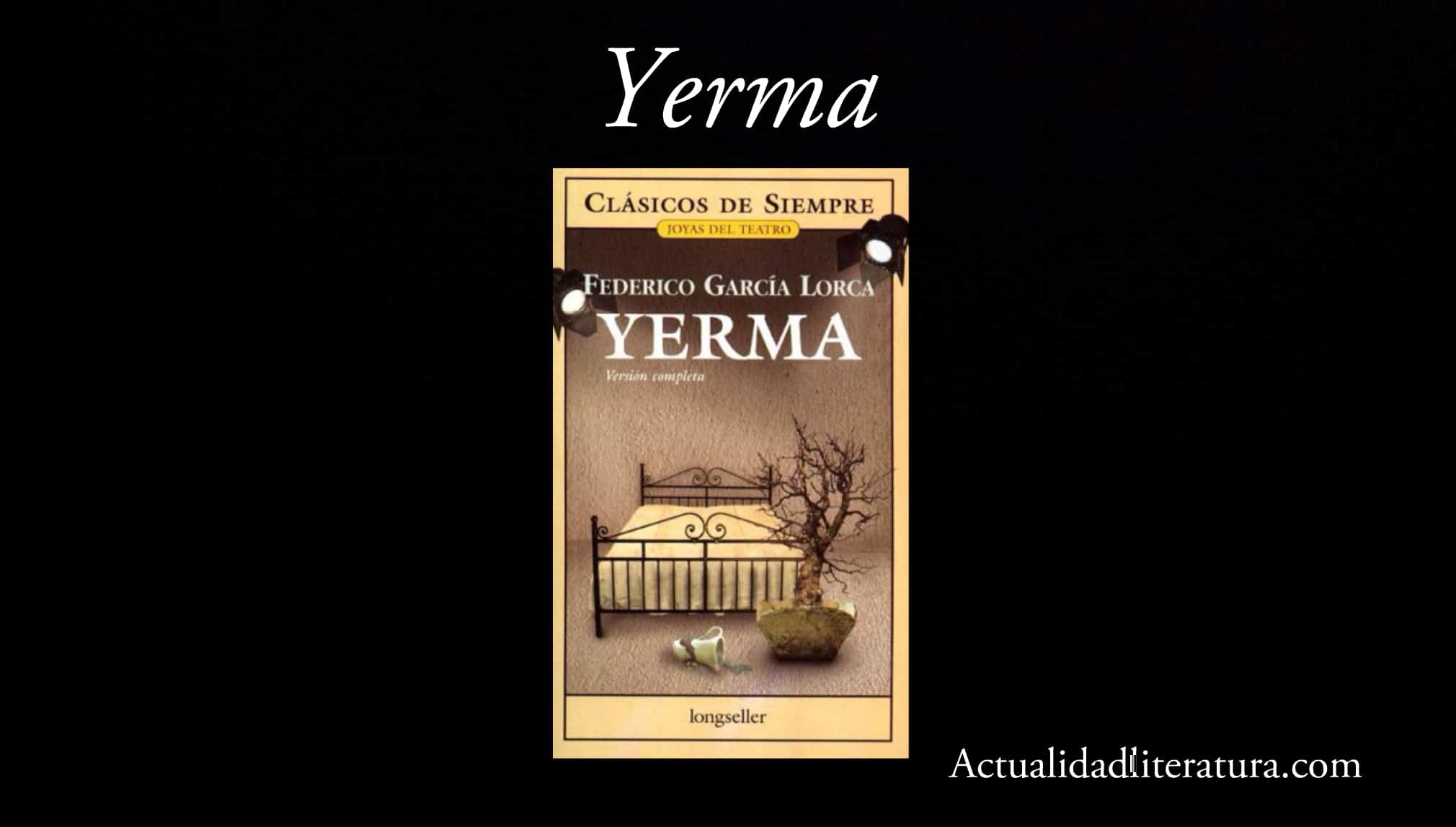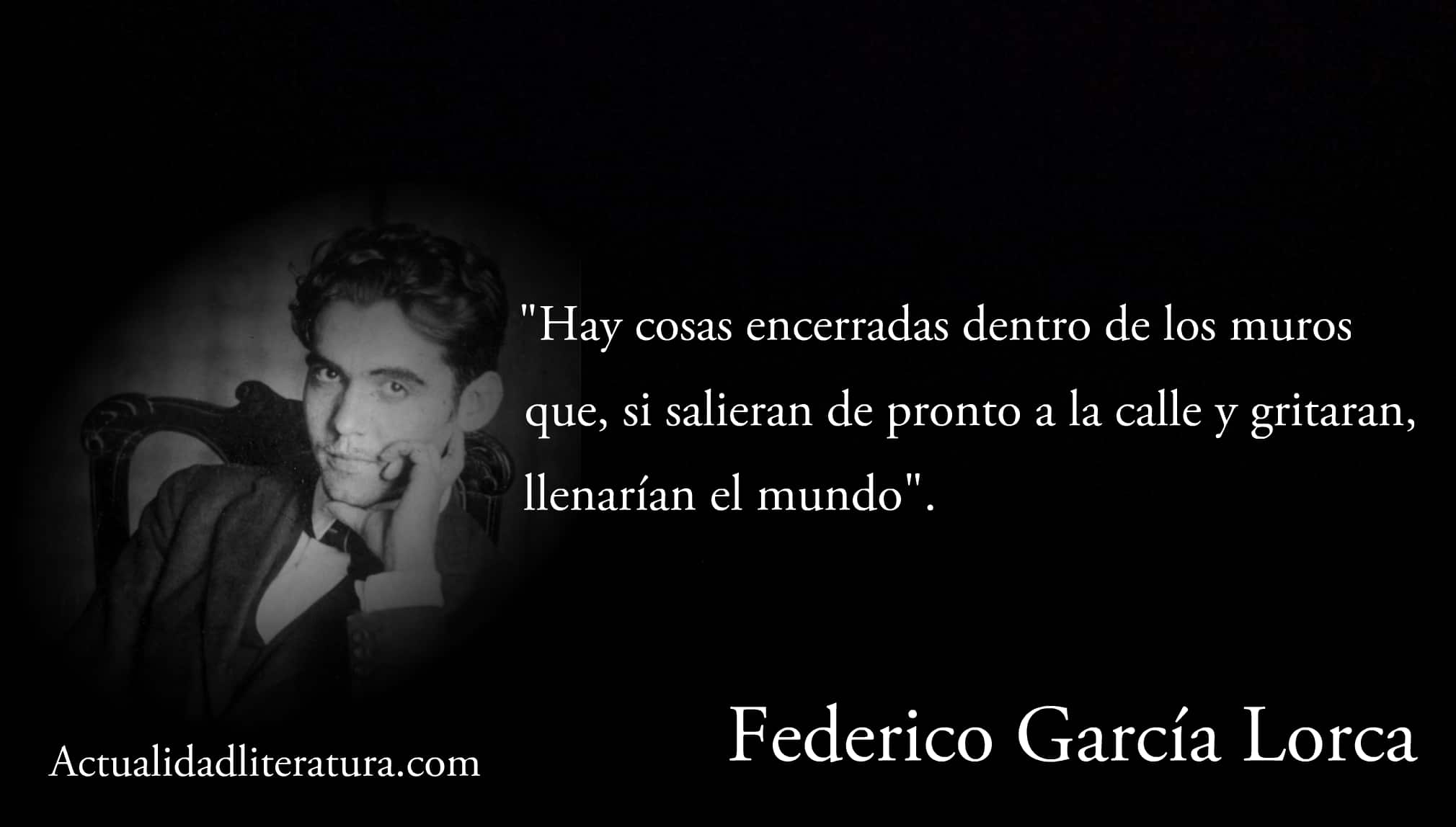
barren.
yerma constitutes together with Blood Wedding (1933) and La casa de Bernarda Alba (1936) the celebrated "Lorca trilogy". Released in 1934, it is referred to as the masterpiece of the theater by Federico García Lorca, —probably— the most important Spanish writer of the XNUMXth century.
Constructed in three acts of two frames each, it is considered a short piece. However, its staging has an average duration of 90 minutes. The theme: a rural tragedy (very fashionable in Latin America during the 1930s). Sublimely used by the Granada-born playwright to make himself known in Spain and much of Latin America.
Federico García Lorca, the author
He was born in 1898 in Fuente Vaqueros, Granada. Son of a wealthy family, which allowed him to grow up in the middle of the field without the obligation to till it in order to survive. His mother fostered in him a taste for literature - and art in general - from an early age. For this reason, it is logical that already in adolescence he drove with a well-formed aesthetic criterion. Blood Wedding is a clear example of it.
The Generation of '27
Frustrated by the cultural boredom of the province, manages to go to Madrid with the aim of continuing his academic training at the Student Residence. The site in question was a very prestigious institution, frequently visited by famous people and scientists such as Albert Einstein and Marie Curie.

Federico García Lorca.
There he became close friends with Salvador Dalí and Luis Buñuel, among many other figures of national and international renown.. In this way, an ideal bohemian and intellectual environment was created for the full development of a person as creative as García Lorca was. Surrounded by exceptional artists; a set that went down in history under the name of the Generation of 27.
A life castrated by fascism
But the fourth decade of the twentieth century, although it served for the emergence of the best of Lorca's work, it also represents one of the darkest moments in Spain. For the Spanish Civil War brought the subsequent rise to power of Francisco Franco. Although Lorca he never affiliated with any political cause or discriminated against friends for ideological reasons, he was seen as a threat.
Faced with this situation, the ambassadors of Colombia and Mexico offered him refuge, however, he did not accept. In July 1936 he was captured and it is estimated that he was shot at dawn on August 18 (the date is not known exactly). Among other things, he was accused of homosexuality.
yerma, poetry at the service of a tragedy
If the dramas of García Lorca stand out for something, it is because of their poetic conception. The dialogues, along with the music - many gypsy songs serve as the engine of this work - set the pace. Y, similar to the rest of the trilogy, the beginning of yerma is a piece (and a character) full of hope. But the accumulation of frustrations ends up turning his existence into a true nightmare.
This vertiginous descent in the spirit of its protagonist marks the development of the work. In addition, while the text is driven by the plot crisis, the action explores conflicts typical of Spanish society. Without becoming a reactionary manifesto, it maintains enough specific weight to (the spectators) pass them by without realizing it.
The argument
yerma, The main character is a woman on whom her father married Juan, a man she does not want. However, he does not resist. Partly because he is an upright and correct person, attached to the sense of honesty. In addition, she sees in this marriage the way to fulfill her deepest purpose: to be a mother.
But barren (thus, with the initial in lowercase) is a term used to identify something infertile or dry. So, time passes ... Yerma, the protagonist cannot conceive. Your desire ends up turning into an obsession and then ends up unleashing the final tragedy. The condemnation of a barren and lonely eternity.
From machismo, social conventions and (lack of) creativity
Rural Spain where it is set the piece is extremely macho. Juan, Yerma's husband, represents just that. A man who unknowingly oppresses and hurts "his" wife. Just because that's the way things work. At the same time it is a machismo encouraged and justified by the women themselves.

Phrase by Federico García Lorca.
Moreover, within accepted social conventions, the fundamental duty of every woman is to serve and give birth, otherwise, she is despised. But Juan the comfort of a quiet life and without the need for children has left him without creativity. That is, without a true passion for life. This apathy leads to an oppression towards the protagonist, who seals his fate.
Honor first, then the rest
There is a third character in the middle of the conflict; His name is victor. He has been a friend of Yerma since their childhood. Likewise, he is one of Juan's workers. Victor and Yerma have been in love forever. The mere presence of this character provokes in her feelings that she does not experience with her husband. Not even in moments of intimacy.
Everyone in the town perceives the attraction between Victor and Yerma. The worst: even when for honor and loyalty they renounce their love, the women begin to whisper about a consummate betrayal. Consequently, the allegations of the person involved do not matter ... the seed of doubt was planted.
Another test of loyalty
In the third act, near the end of the play, Yerma has a chance to run away with another man - stocky, hard-working, in good health - who can give her anything she wants. Apart from home and security, the long-awaited son. The offer comes in a pilgrimage, from the mouth of "the old woman", (title used by García Lorca to identify the mother of the new candidate).
But Yerma does not bend, remains firm in its principles and is congruent with its morality. She wants to have a child, only with her husband. The man who married her and with whom she shares her intimate bed ... if her side cannot breathe, it does not seem relevant to her.
The end of Yerma
The final scene of this piece is one of the most iconic moments in Spanish drama. The protagonist kills her husband by strangling him while he tried to possess her. A rebellion of the oppressed against the oppressors, the result of which is not the desired one.
The sequence of Yerma screaming across the stage that she herself has killed her son (because only with her husband could she have him) is unforgettable for all who have attended a performance. Tragedy in its purest form. With the power that only poetry in the Spanish language can print. Sublime and painful in equal measure.